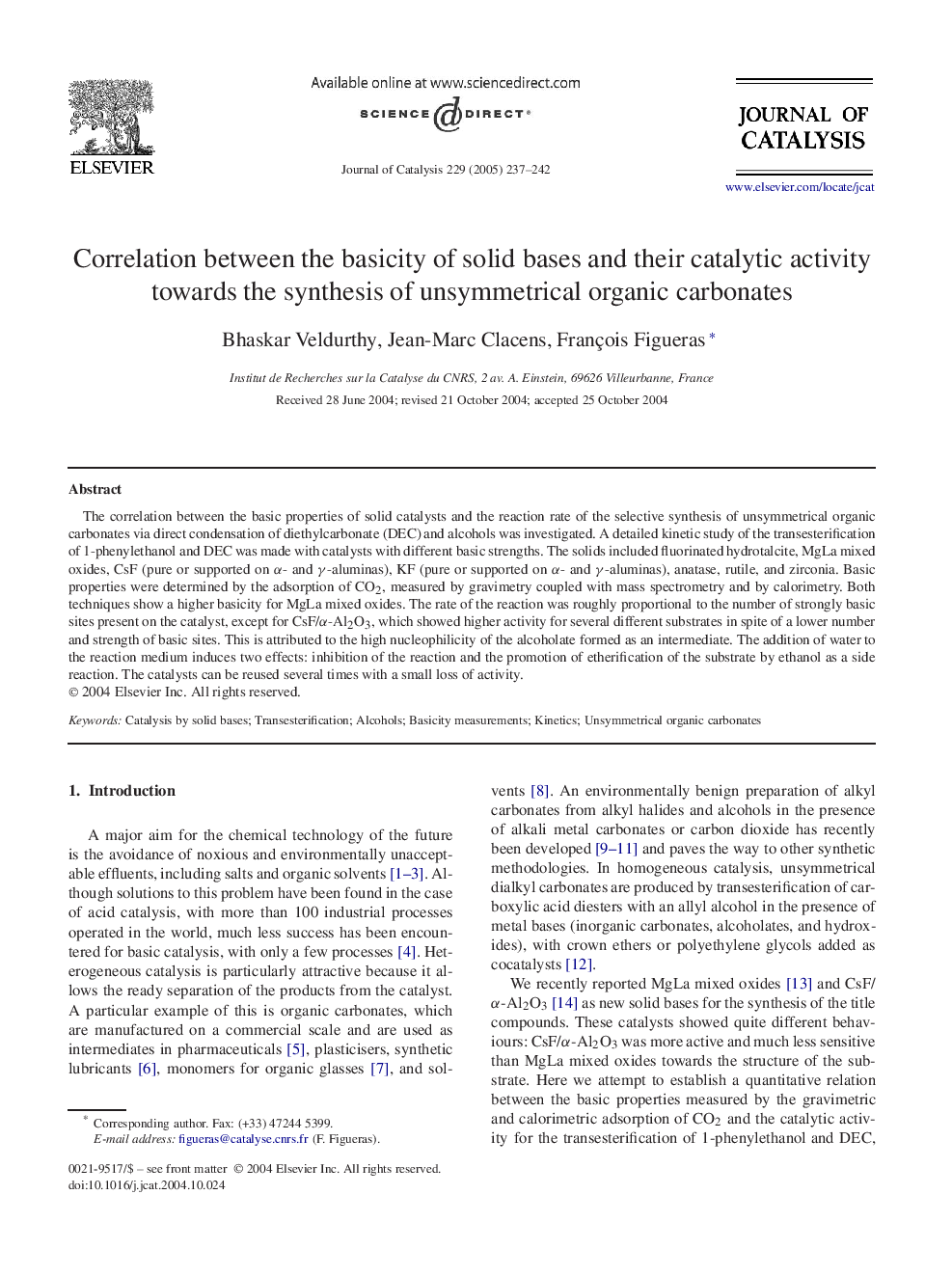| Article ID | Journal | Published Year | Pages | File Type |
|---|---|---|---|---|
| 10245131 | Journal of Catalysis | 2005 | 6 Pages |
Abstract
The correlation between the basic properties of solid catalysts and the reaction rate of the selective synthesis of unsymmetrical organic carbonates via direct condensation of diethylcarbonate (DEC) and alcohols was investigated. A detailed kinetic study of the transesterification of 1-phenylethanol and DEC was made with catalysts with different basic strengths. The solids included fluorinated hydrotalcite, MgLa mixed oxides, CsF (pure or supported on α- and γ-aluminas), KF (pure or supported on α- and γ-aluminas), anatase, rutile, and zirconia. Basic properties were determined by the adsorption of CO2, measured by gravimetry coupled with mass spectrometry and by calorimetry. Both techniques show a higher basicity for MgLa mixed oxides. The rate of the reaction was roughly proportional to the number of strongly basic sites present on the catalyst, except for CsF/α-Al2O3, which showed higher activity for several different substrates in spite of a lower number and strength of basic sites. This is attributed to the high nucleophilicity of the alcoholate formed as an intermediate. The addition of water to the reaction medium induces two effects: inhibition of the reaction and the promotion of etherification of the substrate by ethanol as a side reaction. The catalysts can be reused several times with a small loss of activity.
Keywords
Related Topics
Physical Sciences and Engineering
Chemical Engineering
Catalysis
Authors
Bhaskar Veldurthy, Jean-Marc Clacens, François Figueras,
